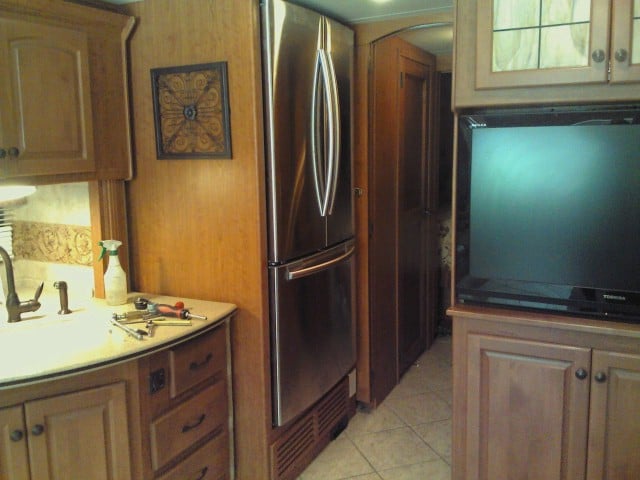Most of what i see look.
Rv refrigerator draining battery.
When that happens you ll know that fuse is protecting the circuit which contains the component draining the battery.
And in this digital electronic age things that are off are often still drawing a small amount of power.
A rv refrigerator or a residential refrigerator for rv consuming around 150 watts while it is running would be drawing around 12 amps hour from a single 12 v battery.
Electric steps some have lights or are always monitoring the door to see if they need to be in or out also always double check any cabinets or closets where lights turn on automatically when you open them.
It s common for an rv to be draining anywhere from 0 25 1 0 amps hr when things are off.
Refrigerator circuit board may use power even if fridge is off automatic gas valves.
All the lamps fans water pump etc still operate on 12 volts dc just that the dc electricity is provided by the converter instead of the batteries while plugged in.
Over the past few years i ve come across dozens of rv s that have minor to extensive water damage under and around the refrigerator.
The 12 volt system is powered by a battery or in some cases multiple batteries and it powers things such as the start up on your water heater furnace and refrigerator plus most of the lights in your rv s living space your water pump your carbon.
When plugged into shore power at the campground presumably the ac to dc converter will charge the auxiliary battery bank.
And under these conditions a rv refrigerator alone can run for around 4 5 hours using the 12 v battery supplying around 100 amp hours.
A residential style fridge works best with an upgraded battery bank and an ac dc compressor fridge can drain your stock battery bank when boondocking.
If the drain disappears when a particular fuse is removed the meter will indicate zero.
A 12 volt dc electrical system and a 120 volt ac system.
And remember as soon as the battery state of charge drops below 12 5 volts sulfation starts and if the battery stays in that condition for an extended period of time the battery will die.
Your fridge for example has the circuit board powered just waiting for you to press the on button.
If the drain persists go to the dc fuse panel and remove each fuse one fuse at a time.
In your rv it s possible for these parasitic loads to drain the battery when you don t use or charge the battery for long periods of time.

